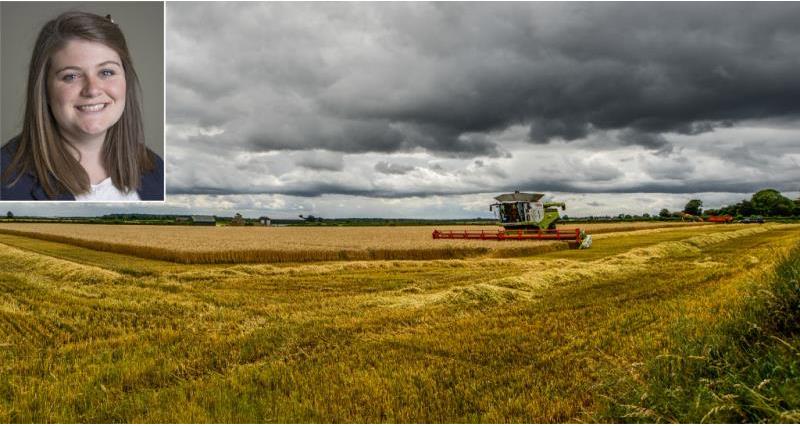She writes:
With farming unions from over twenty member states present you can imagine how quickly discussions at the meeting turned to comparing 2017 harvest experiences. The harvest roundtable is always an eye opener but this year it became abundantly clear that the weather has been the largest factor in determining the success of harvests across the continent.
If I were to generalise I would say those of us in Northern Europe had experienced too much rain, whilst those in the Southern Mediterranean countries hadn’t received enough. The Spanish delegate reported that on his farm in southern Spain they had not had a single drop of rain since May! Meanwhile our farming colleagues in the Baltic States reported that up to 50% of cereal crops remain in the ground (as of 11 October) due to the excessive rain and poor harvesting conditions.
Following a particularly bad harvest last year the French delegates were pleased to report a return to the norm. Wheat yields were around average reaching very good quality and despite difficult sowing conditions in autumn 2016 they reported almost record oilseed rape production.
In neighbouring Germany, traditionally a power house of cereals and oilseeds, the picture wasn’t so good and German delegates reported below average production for both cereal and oilseeds. They suggested this was primarily due to the unpredictable weather - mild winter followed by a cold spell in late spring, then very hot humid conditions in June and ending with continuous rain throughout July. As a result all their grain was harvested at much higher moisture contents than normal and quality was reduced with protein levels suffering.
Many of the member states also highlighted the impact the weather was having on drilling conditions, for example the Polish delegates reported that they expect their oilseed rape area to be reduced by up to 30% due to poor drilling conditions thanks to excessive rain. As a knock on effect they also expect that up to 30% of the crops drilled will not survive the unfavourable Polish winter due to poor establishment.
Meanwhile further south the Portuguese reported that they are currently unable to drill their winter crops as due to the extensive drought the land is too hard and cannot be cultivated. With the last reservoir due to dry out shortly, they have resorted to rain dances!
